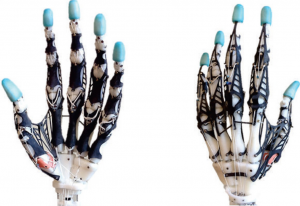Amazon is one of the world’s most successful companies and has been growing exponentially since it’s creation. With thousands of products to choose from at the click of a button to cashier-less grocery stores, it seems like there’s almost nothing Amazon can’t offer. Not too long ago we encountered the launch of Amazon’s Alexa, the smart home in a speaker. Now they’re taking it up yet another step and introducing home security packages. According to an article on The Verge by Dani Deahl, there will be five different tiers of home security packages which range in service and price. To begin the process, Amazon will have an employee come to your home and assess your security needs and install the package. For only minor needs, there is a deal worth a mere $240 that includes motion-detecting lights and a wireless waterproof speaker. On the other hand, a package worth $840 includes a smart flood and leak sensor, entry sensors, and the well-known Ring doorbell. No matter what package the user chooses, an Amazon echo dot is automatically included. Personally, I think this is a great way to bring together the Ring doorbell system, recently purchased by Amazon, with its artificial intelligence products Alexa and the Echo Dot. This could be a huge bonus to smart homes across the country. Adjusting your heat and preheating the oven with the touch of a button is great, but having the ability to keep track of your home’s safety at all time’s would make life less stressful and vacations more enjoyable. With this addition to AI, there are definitely security risks. Like we went over in class, AI is “Any system that generates seemingly intelligent decisions or predictions.” Having AI devices now connected to a camera outside of your home and being able to gain information through sensors, there’s a possibility of hacking and having that data and video footage accessed by people with malintent. Do you think it’s worth having Amazon’s security packaged installed?
Source: https://www.theverge.com/2018/4/27/17291134/amazon-smart-security-packages-installation





